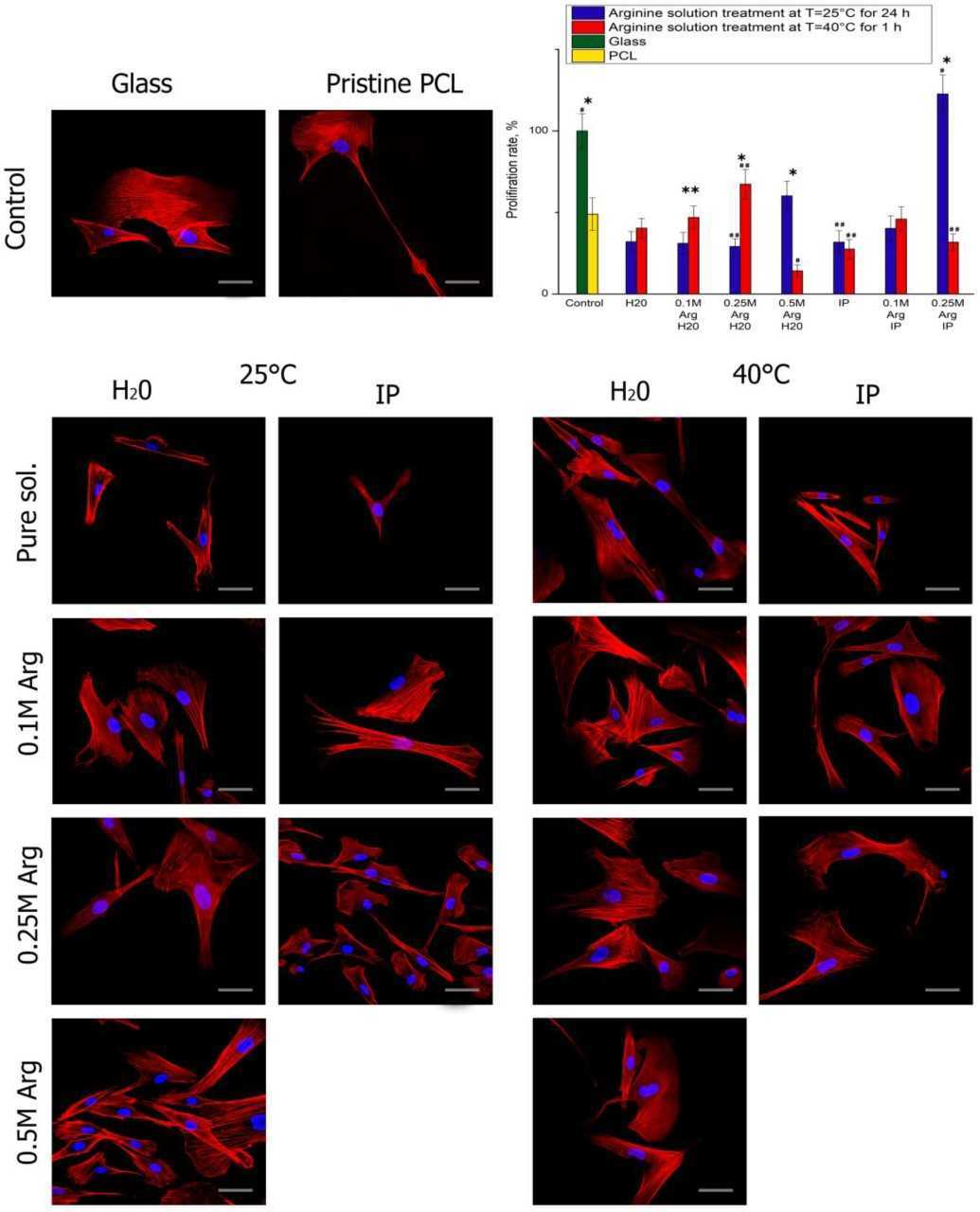Researchers at IKBFU and their colleagues have perfected polycaprolactone, a biocompatible and biodegradable polymer, so that human cells can attach to it and divide on its surface. The material can thus be used in regenerative medicine to repair damaged tissue and to grow new tissues. The results of the research, supported by a grant from the Russian Science Foundation, are published in the Polymers Journal.
Modern regenerative medicine needs materials that allow rapid repair of human tissue after injuries, such as severe burns. Polycaprolactone is a biodegradable polymer, but it has certain drawbacks, such as hydrophobicity. Moreover, it is not sufficiently bioactive, i.e., it lacks specific binding sites for cell attachment, migration, division and differentiation.
Polycaprolactone can be improved by "hinging" amino groups — small nitrogen-containing groups of atoms that are recognised by cells. Studies have shown that they also increase the hydrophilicity, i.e. wettability of the material, help cells attach to it and also reduce the possibility of inflammation during insertion of polycaprolactone implants.
Earlier, scientists from Immanuel Kant Baltic Federal University and their colleagues from the Institute of Cytology (St. Petersburg), the Institute of Experimental Medicine (St. Petersburg), the Institute of High-Molecular Compounds (St. Petersburg) and the Ioffe Physical Technical Institute (St. Petersburg) proposed using arginine as a source of amino groups to modify polycaprolactone. This amino acid contains the highest possible amount of nitrogen atoms for such compounds, so a relatively small amount of it is needed to modify the polymer.
In the new work, the authors investigated how such conditions as temperature and arginine amount affect the properties of the resulting films of polycaprolactone. The scientists determined that heating to 40°C and high concentrations of arginine make it possible to produce the material compatible with water. In addition, these samples were the strongest, withstanding twice the tensile strength of untreated polycaprolactone.
The authors further cultured human mesenchymal stromal cells on polycaprolactone samples modified under different conditions. The experiment showed that their ability to attach was directly proportional to the amount of arginine used for the treatment.

User profile for student
User profile for student
I give consent to the processing of the personal data provided, with Personal Data Processing Policy acquainted
Confirm consent